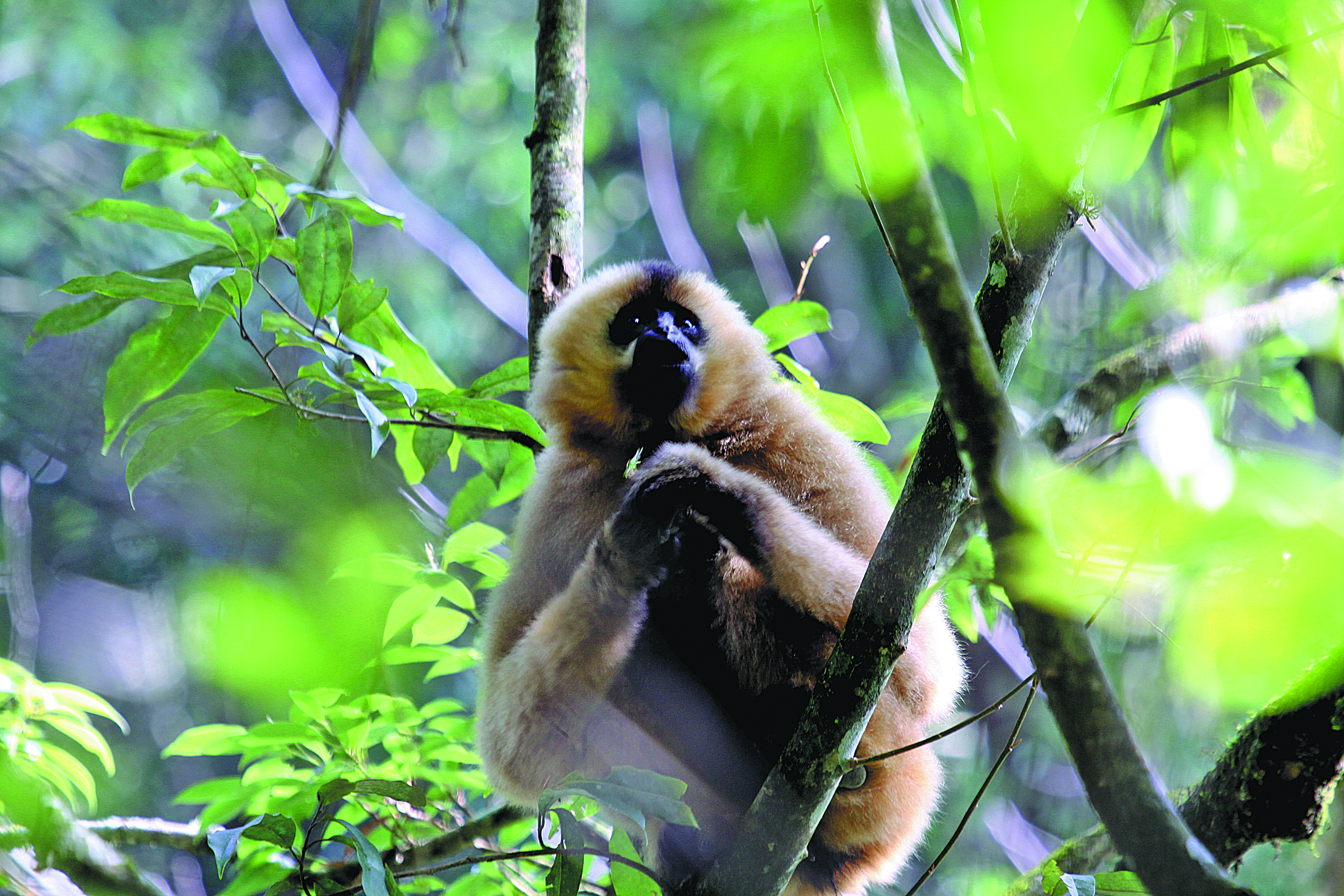Unique study aids efforts to protect gibbons
The forests of Southwest China are home to a large population of the vulnerable apes. Yang Wanli and Li Yingqing report from Xinping county, Yunnan.


Li Guolin, a forest ranger in the Ailao Mountains in the southwestern province of Yunnan, takes care of many different plant species.
However, the 40-year-old also looks after an endangered animal-the western black crested gibbon, a small primate named for the black fur on the crown of its head.
In recent decades, the loss of its habitat to the expansion of agriculture, illegal use of forest land and unlawful logging have led to a sharp decline in the ape's numbers.
The International Union for Conservation of Nature classifies the species as the second-most endangered primate in the world, with a total population of between 1,100 and 1,300.
Yunnan is the species' sole habitat in China, and Xinping county is home to 124 groups, the largest number in the province, comprising 500 to 600 members in total.
Li's base, the management office of the Ailao Mountain Nature Reserve in Xinping, has been making conservation efforts since the late 1980s.
Those efforts have helped to promote a rise in the animal's population in recent years.
Also, under the guidance of scientists, the forest rangers have successfully accustomed the gibbons to their presence through several years of day-to-day observations, rather than simply providing them with food to encourage familiarity.
























